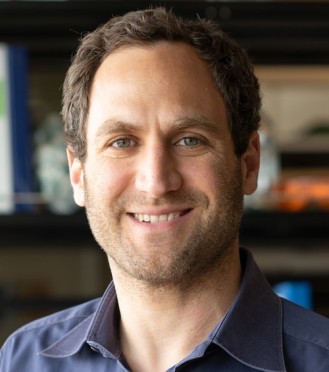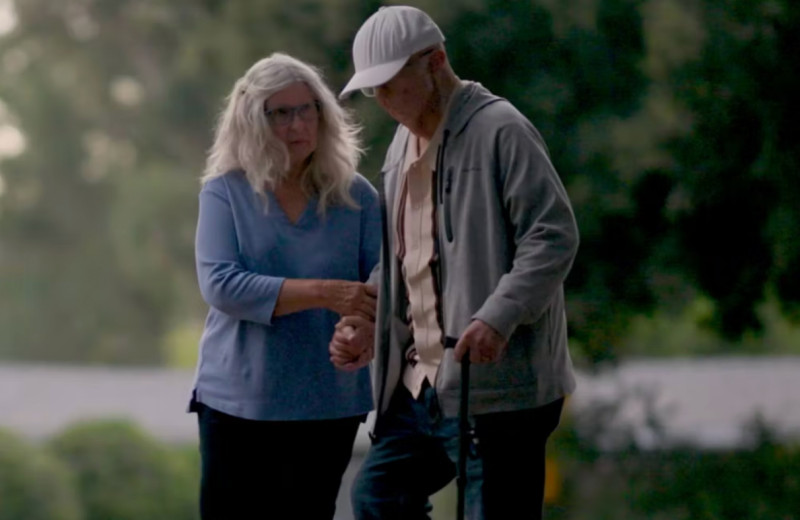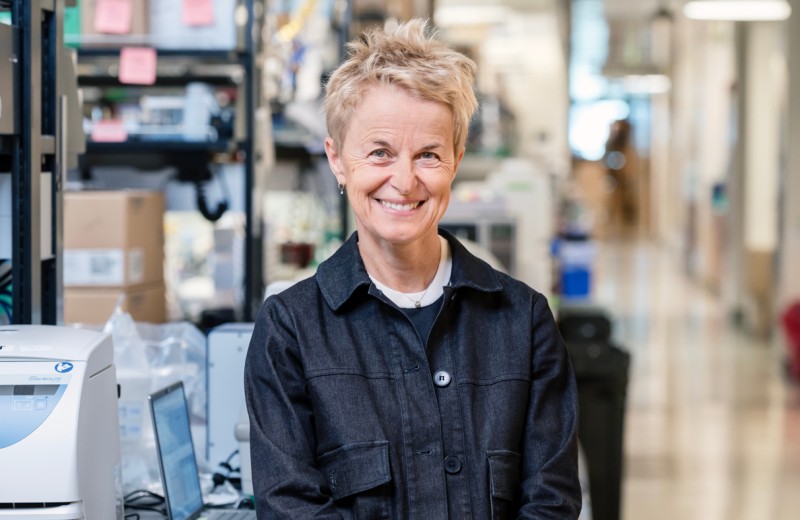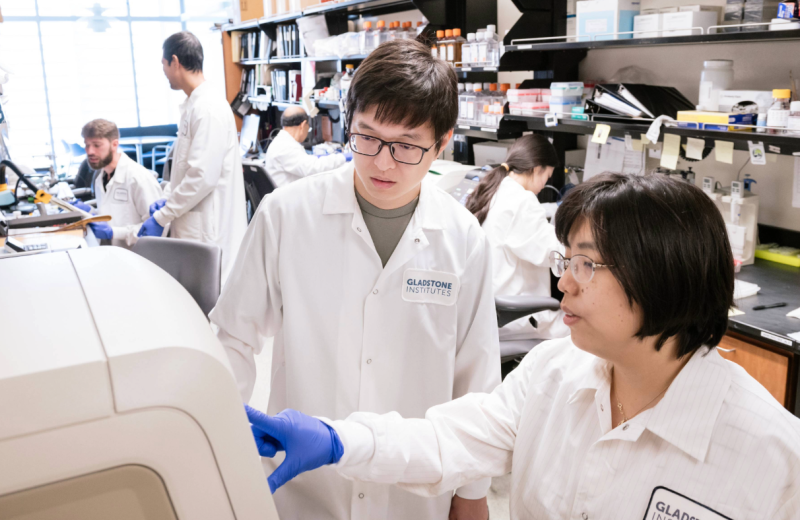Gladstone NOW: The Campaign Join Us on the Journey✕
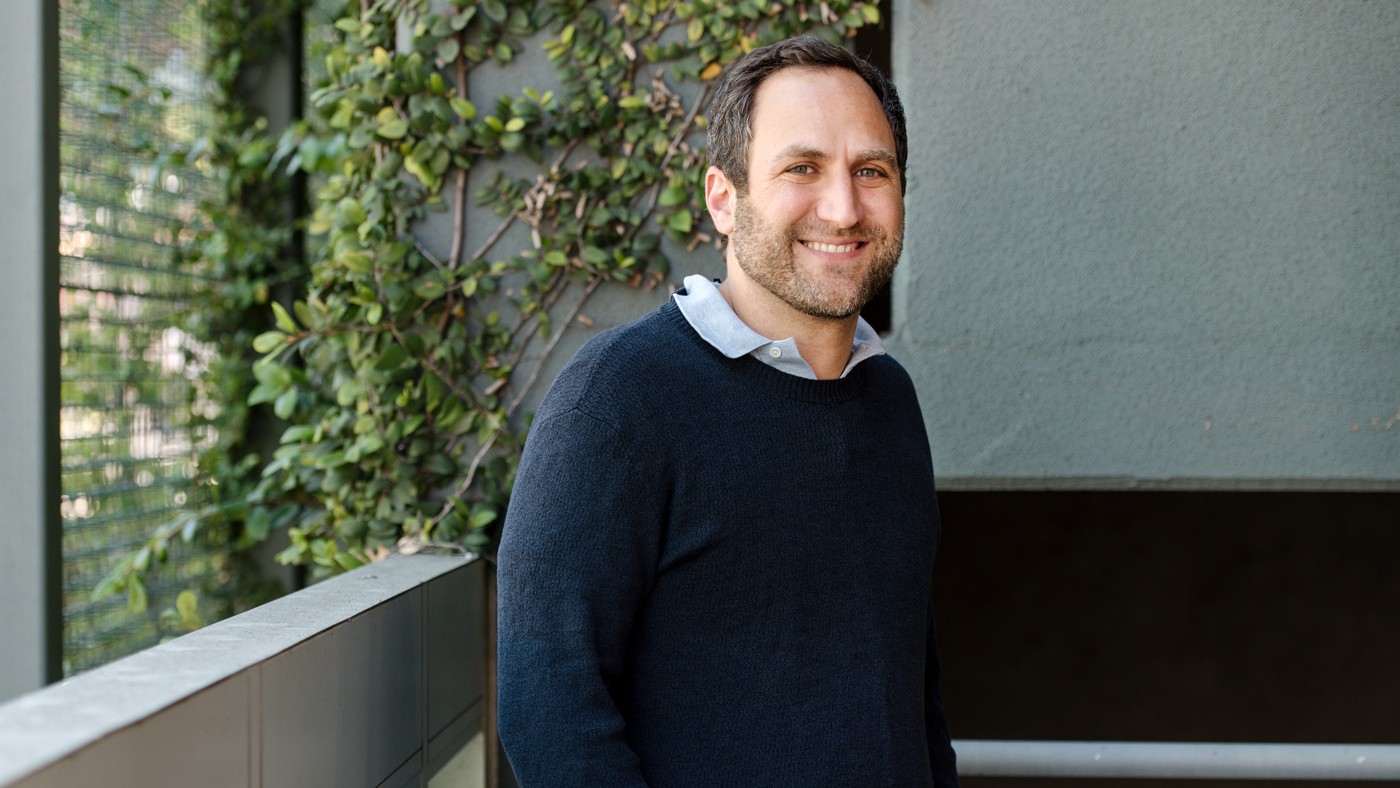
Alex Marson is recognized for his and the institute’s pioneering blend of genomics and immunology toward the design and improvement of cancer immunotherapy.
Alex Marson, MD, PhD, has been named the Connie and Bob Lurie Director of the Gladstone-UCSF Institute of Genomic Immunology at Gladstone Institutes. This distinction recognizes Marson’s pioneering contributions to cancer immunotherapy and his visionary stewardship of the institute, which he has directed since its creation in 2020.
“The Connie and Bob Lurie Foundation has a track record of supporting high-caliber medical and research institutions,” says Gladstone President Deepak Srivastava, MD. “We are honored that they chose one of our institutes as the recipient of this directorship, and are delighted for this recognition of Alex’s dedication to fast-tracking genomic immunology from the bench to the clinic.”
Connie and Bob Lurie are well-known Bay Area philanthropists with a long history of supporting higher education, local community organizations, and biomedical research. The Lurie family has been deeply involved with the Damon Runyon Cancer Research Foundation since its founding, and has helped fund generations of promising early-career scientists.
Marson has dedicated his research to harnessing immune T cells as therapeutics for cancer, infectious diseases, and autoimmune diseases. T cells hold great potential as therapeutic agents because they carry molecules on their surfaces that can recognize specific cells with exquisite precision. Once they latch onto their targets, T cells can kill them or enlist the help of other immune cells to destroy them.
“Connie and Bob’s partnership, generosity, and now their friendship have been instrumental in building the Institute of Genomic Immunology into a community that is poised to develop far-reaching immunotherapies.”
T cells tuned to recognize cancer cells have already proven very efficient at eliminating some cancers of the blood. But unless T cells can be manipulated easily and produced in large numbers, their clinical applications will be prohibitively expensive, or limited to a small number of diseases. Marson and his colleagues in the Gladstone-UCSF Institute of Genomic Immunology are tackling these challenges.
Their endeavors were greatly facilitated by the discovery of CRISPR genome editing, which happened around the time Marson set up his lab at UC San Francisco (UCSF). In collaboration with Jennifer Doudna, PhD, the co-discoverer of CRISPR, Marson pioneered the use of this technology to modify DNA sequences in the genome of human T cells. His lab has since developed cutting-edge CRISPR gene editing technologies to map the gene networks that control the function of T cells and improve the engineering of T cell–based immunotherapies.
Marson joined Gladstone in 2020 as founding director of the Gladstone-UCSF Institute of Genomic Immunology. The institute aims to re-engineer the human immune system and quickly translate basic research in immunology and genomics into immunotherapies to treat a wide variety of diseases. It brings together nearly 30 labs and affiliates based at Gladstone, UCSF, and other institutions, combining their expertise in immunology, genomics, computational approaches, human disease, and synthetic biology.
Recent work by institute members includes the demonstration that lymph nodes can boost the success of cancer immunotherapy, the discovery of a gene that can increase the resilience of cancer-fighting T cells, the harnessing of machine learning to predict the effects of genetic mutations on phenotypes and disease risk, and new technology to rapidly compare the efficacy of cancer-fighting immune cells.
Under Marson’s stewardship, Gladstone recently partnered with the Parker Institute for Cancer Immunotherapy (PICI), a leading network of research centers dedicated to harnessing immune cells to fight cancer to create a new research center. This center aims to use the latest genomic technologies to learn how to control human immune cells precisely and design next-generation immunotherapy approaches for clinical testing.
“I am profoundly honored to become the Connie and Bob Lurie Director,” says Marson. “Connie and Bob’s partnership, generosity, and now their friendship have been instrumental in building the Institute of Genomic Immunology into a community that is poised to develop far-reaching immunotherapies.”
Marson is also a professor in the Departments of Medicine and Microbiology and Immunology at UCSF, center director of the Parker Institute for Cancer Immunotherapy at Gladstone, scientific director of human health at the Innovative Genomics Institute, and director of the CRISPR Cures for Cancer Initiative.
Support Discovery Science
Your gift to Gladstone will allow our researchers to pursue high-quality science, focus on disease, and train the next generation of scientific thought leaders.
One Person’s Final Gift to Science Gets Us Closer to an HIV Cure
One Person’s Final Gift to Science Gets Us Closer to an HIV Cure
A new documentary follows Jim Dunn’s end-of-life decision to donate his tissues to HIV research.
Institutional News HIV/AIDS Infectious Disease Roan LabBeyond Viruses: Expanding the Fight Against Infectious Diseases
Beyond Viruses: Expanding the Fight Against Infectious Diseases
The newly renamed Gladstone Infectious Disease Institute broadens its mission to address global health threats ranging from antibiotic resistance to infections that cause chronic diseases.
Institutional News News Release Cancer COVID-19 Hepatitis C HIV/AIDS Zika Virus Infectious DiseaseFueling Discovery at the Frontiers of Neuroscience: The NOMIS-Gladstone Fellowship Program
Fueling Discovery at the Frontiers of Neuroscience: The NOMIS-Gladstone Fellowship Program
The NOMIS-Gladstone Fellowship Program empowers early-career scientists to push the boundaries of neuroscience and unlock the brain’s deepest mysteries.
Institutional News Neurological Disease Mucke Lab NOMIS

